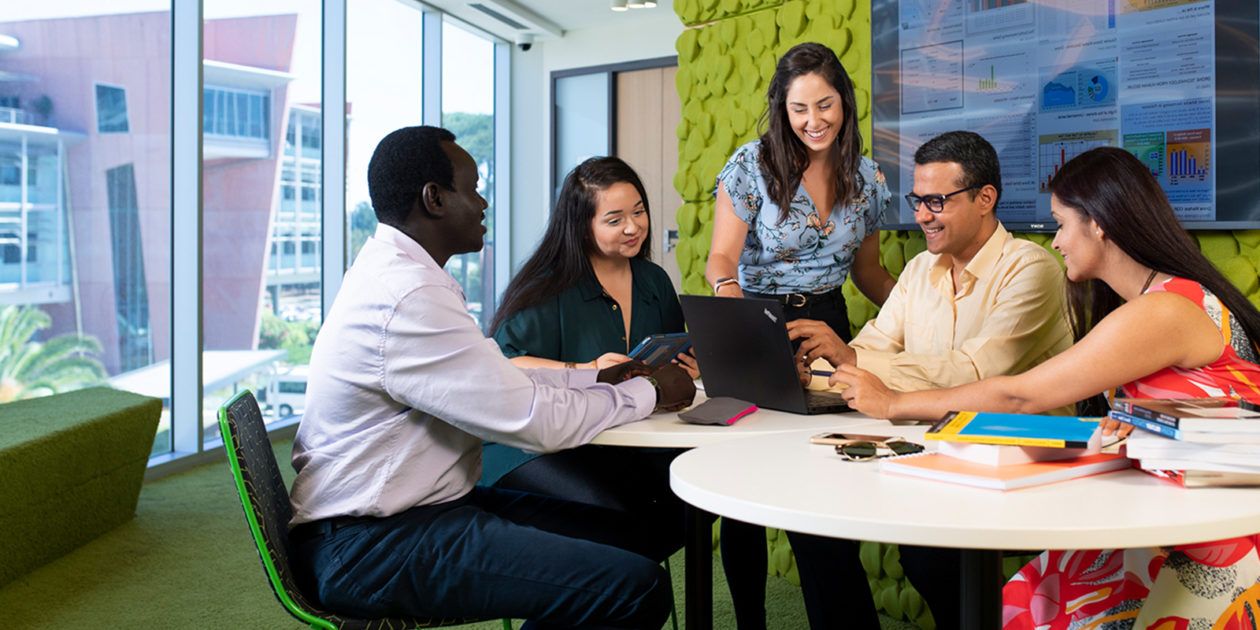Overview
Overview
Develop expert research skills and gain expertise in Indigenous research methods and knowledge-sharing practices.
This doctorate research program is grounded in Indigenous knowledges, experiences and values – also known as Indigenous Terms of Reference. It is designed to honour and uplift Indigenous worldviews and ways of learning by focusing on Indigenous ontology and epistemology – that is, Indigenous ways of being, doing and seeing.
This program draws on the many ways Indigenous pedagogy and practice can deepen and grow Indigenous knowledges. The course is crafted to respect the wisdom and teachings of those who came before – Elders and Ancestors.
You will be invited to explore the concept of connection in its many forms – connection to Country, spirit and the environment. Your work will be guided by a commitment to meaningfully give back to people, communities, Country and the natural world.
You may work in areas where:
- self-determination is of paramount importance
- Indigenous knowledges are given due respect and acclaim
- Indigenous leadership is emphasised
- research impacts must be of real value to communities
- research must align with AIATSIS Guidelines.
Upon completing this program, you’ll acquire a deep and critical understanding of Indigenous research methods, knowledge-sharing practices and specialised research skills. You will be able to explore, question and contribute to your chosen area of research in line with the Australian Qualifications Framework Level 10 requirements.
Graduates may work in local government, such as the Department of Communities or the Department of Biodiversity, Conservation and Attractions.
Guiding ethics and principles
Ethical practice is central to this program, with a strong emphasis on reciprocity, respect and accountability in research and community engagement. This program also highlights the importance of protecting Country, caring for the environment, and sustaining Indigenous languages and knowledges for future generations.
The overarching themes of People, Planet and Partnerships will guide your work. In alignment with our Curtin values and the core ideals of Indigenous research, you will embody integrity, courage, impact, respect, excellence and beneficence in your work and scholarly practice.
Your research
There are three ways you may undertake your research:
- Through a creative work – like music, writing, visual or performing arts – with an explanation (exegesis).
- By writing a thesis of up to 100,000 words.
- By submitting a publication or compilation thesis which features an introduction chapter, conclusion chapter and five to seven chapters published within.
Why research at Curtin
Curtin is widely recognised for applied research firmly focused on solving real-world problems. Underpinning our research endeavours are strong partnerships with industry, business and government, which result in outcomes that greatly benefit the broader community locally, nationally and globally. Our international reputation for being a strong partner in industry-driven research ensures our graduates enjoy outstanding opportunities to become innovators in their fields.
What jobs can the Aboriginal Studies course lead to?
Careers
- Consultant
- Freelancer
- Project lead
- Research fellow
Industries
- Community services
- Education and training
- Environmental protection
- Government and non-government
- Health
What you'll learn
- Demonstrate expert understanding of theoretical knowledge and to reflect critically on that knowledge and their practice
- Think critically, evaluate existing knowledge and ideas, undertake systematic investigation and reflect on theory and practice to generate original knowledge
- Apply expert creative, technical and professional skills to the field of work or learning
- Explain and critique theoretical propositions, methodologies and conclusions
- Present a complex investigation of originality or original research for external examination against international standards
- Communicate complex research concepts, plans and outcomes to the general community, peers and the national and international research community
- Design, implement, analyse, theorise and communicate research that makes a significant and original contribution to knowledge and/or professional practice
